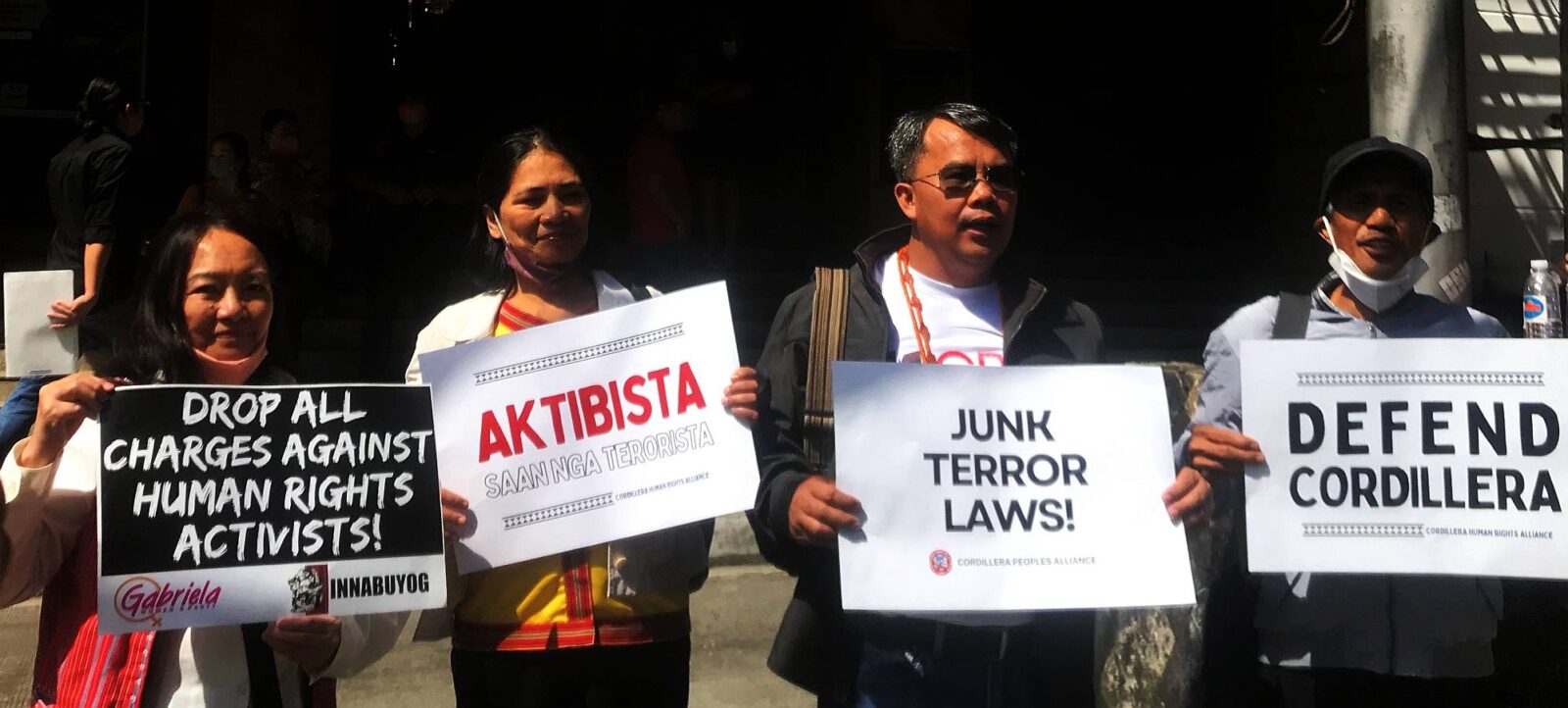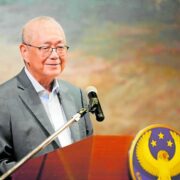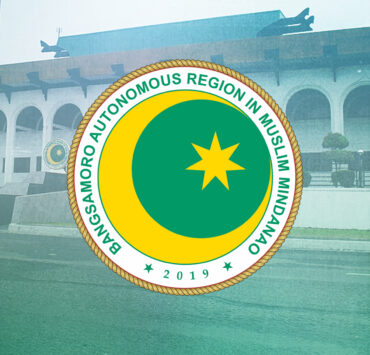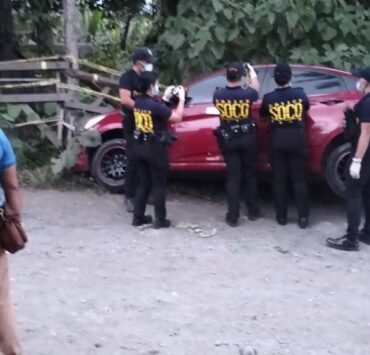Baguio terror trial to resume in 2025

BAGUIO CITY—The trial questioning the terrorist designation of four indigenous Filipino activists will resume in 2025, days after its original judge inhibited from the proceedings.
Baguio City Regional Trial Court (RTC) Branch 78 Judge Hilario Belmes, who took over from Baguio City RTC Branch 7 Judge Cecilia Corazon Dulay-Archog, moved the trial dates from Nov. 25 and Dec. 5 to Feb. 21 and March 20 next year to adjust to a court-sharing arrangement it has with another court.
Dulay-Archog stepped down midtrial on Oct. 31 after the Office of the Solicitor General (OSG) asked her to recuse herself from the lawsuit that questioned the Anti-Terrorism Council’s (ATC) decision to classify Baguio-based activists Windel Bolinget, Stephen Tauli, Jennifer Awingan-Taggaoa and Sarah Abellon-Alikes as terrorists “without due process.”
Belmes shares a courtroom with the Municipal Trial Court of Cities Branch 5 at the Court of Appeals summer courthouse and not the Baguio Justice Hall behind City Hall.
Belmes, on Nov.21, acknowledged his court has received all documents related to the petition for certiorari and prohibition and an appeal for a writ of preliminary injunction filed by the activists against Executive Secretary Lucas Bersamin, who chairs the ATC, and Bangko Sentral ng Pilipinas Governor Eli Remolona, who heads the Anti-Money Laundering Council.
It would be the government’s turn to present its evidence next year.
The petitioners and several witnesses have testified they were not informed nor did they undergo questioning before the ATC issued Resolution No. 41 in July 2023 that designated them as terrorists. All four activists are members of the Baguio-based Cordillera Peoples Alliance, a group of civic organizations that assert indigenous peoples’ rights.
Disqualification
Belmes also indicated he will resolve a second petition from the OSG seeking to disqualify one of the activists’ counsels, human rights lawyer and Baguio City Councilor Jose Molintas.
Molintas and Ephraim Cortez of the National Union of Peoples’ Lawyers have been representing the activists, but the OSG said the councilor violated the Local Government Code and rules on professional ethics for litigating a case against the government.
The OSG motion, dated Oct. 2, argued that elected officials may practice their professions but the local government code restricts lawyers from participating in lawsuits where the government is “the adverse party.”

















